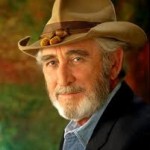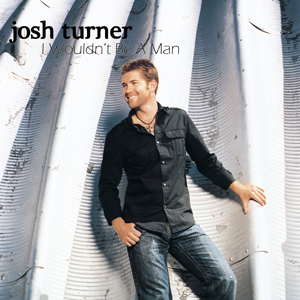
100 Greatest Men: #50. Don Williams
 100 Greatest Men: The Complete List
100 Greatest Men: The Complete List
As soft-spoken off the record as on, Don Williams became known as the Gentle Giant, as he quietly racked up dozens of hits over the course of two decades.

 100 Greatest Men: The Complete List
100 Greatest Men: The Complete List
As soft-spoken off the record as on, Don Williams became known as the Gentle Giant, as he quietly racked up dozens of hits over the course of two decades.

A Great Song That You Discovered After Everybody Else Already Heard It.
Here are the staff picks:
Dan Milliken: “Lord I Hope This Day is Good” – Don Williams
What can I say? I like to think I have a strong overview-type knowledge of country music, but I guess everyone’s got some inexplicable holes in their cultural patchwork. I’ve known of this classic by name for years and have listened through a fair amount of other Don Williams, but I’d never actually bothered to fire the song up until Leeann used it as her pick for one of these categories the other day. Good stuff, though.

A Song That Describes You.
Here are the staff picks:
Leeann Ward: “Lord, I Hope This Day is Good” – Don Williams
There might be a song that technically describes me better than this one, but this is the song that perfectly describes how I feel each morning before I start my day. I don’t know why, but I relate to it on a guttural level.

 I wouldn’t be a man if I didn’t feel like this
I wouldn’t be a man if I didn’t feel like this
I wouldn’t be a man if a woman like you
Was anything I could resist
I’d have to be from another planet
Where love doesn’t exist
I wouldn’t be a man if I didn’t feel like this
Hmm.
Well, this is kind of an unusual situation: a modern country singer choosing to resurrect an old country song…that was never that good to begin with.


 As with the similar CMA category of Single of the Year, looking over the history of this category is the quickest way to get a snapshot of country music in a given year. There is a quite a bt of consensus among the two organizations here, and it is very rare for the winner at one show to not at least be nominated at the other. The winners list here would make a great 2-disc set of country classics, at least for those who don’t mind a little pop in their country. The ACM definitely has more of a taste for crossover than its CMA counterpart, and the organizations have only agreed on 17 singles in the past four decades and change.
As with the similar CMA category of Single of the Year, looking over the history of this category is the quickest way to get a snapshot of country music in a given year. There is a quite a bt of consensus among the two organizations here, and it is very rare for the winner at one show to not at least be nominated at the other. The winners list here would make a great 2-disc set of country classics, at least for those who don’t mind a little pop in their country. The ACM definitely has more of a taste for crossover than its CMA counterpart, and the organizations have only agreed on 17 singles in the past four decades and change.
As always, we start with a look at this year’s nominees and work our way back to 1968.
2010
There’s usually a “Huh?” nominee among the ACM list in recent years. This year, it’s David Nail. Good for him! Currington hasn’t won yet for this hit, even though he got himself a Grammy nomination for it. With Lady Antebellum reaching the upper ranks of the country and pop charts with “Need You Now”, my guess is that they’re the presumptive favorites. Then again, Miranda Lambert is a nominee for the third straight year, and she’s up for her biggest radio hit.
2009
Adkins has been a fairly regular fixture on country radio since 1996, but this was his first major industry award. He also won the ACM for Top New Male Vocalist in 1997.

 Like many country fans who discovered the genre in the nineties, CMT and TNN were central to my experience of discovering music. When CMT shifted to non-music programming, GAC quickly became the channel of choice. But as that channel grew in popularity, it shifted its emphasis to only mainstream country music, losing the diversity that defined it in its early years.
Like many country fans who discovered the genre in the nineties, CMT and TNN were central to my experience of discovering music. When CMT shifted to non-music programming, GAC quickly became the channel of choice. But as that channel grew in popularity, it shifted its emphasis to only mainstream country music, losing the diversity that defined it in its early years.
When moving late last year, I switched cable companies. Initially, I thought the best country-related channel I’d gotten in the switch was CMT Pure, which plays only music. Unfortunately, older videos are limited to a 1/2 hour of programming called “Pure Vintage”, a pale comparison to the three-hour early morning extravaganza “CMT Classic” that once ran on CMT proper in the wee hours of the weekend.
By a fluke, I discovered RFD-TV, which bills itself as “Rural America’s Most Important Network.” I could care less about the horse and agriculture shows, but with country music, this channel has hit the jackpot.

The following is a guest contribution by Country Universe reader Tad Baierlein.
When Dan Seals died of lymphoma last Wednesday, a great deal of the press coverage centered on his days as “England Dan” in the soft rock duo England Dan and John Ford Coley. Seals’ country career, though more successful for a longer period of time, seemed to be treated as an afterthought.
Many of the obituaries mentioned Seals’ biggest country hit, “Bop”; hardly an accurate representation of his years spent in country. Now, it’s perfectly justifiable to glance at a person’s career highlights for a newspaper obituary, but I think that a great deal more attention should’ve been paid to Seals’ death within the country music community. I would like to contribute this little appreciation to one of my favorite country artists.
“The Banker”
Rebel Heart, 1983
For two years following the split of England Dan and John Ford Coley, nothing seemed to be going right for Seals. First off, he recorded two solo soft rock albums just as that sound was going out of favor. Aside from one single ekeing its way into the Adult Contemporary charts, the albums were considered huge failures. Secondly, Seals had accrued a massive amount of debt to the IRS; almost everything he owned was repossessed to pay it. Seals’ move to Nashville had been planned for quite a while but in 1982 it seemed almost a necessity.
This song that he wrote for Rebel Heart would seem to place his frustrations and hope in the story of a man trying to save his land from an evil, number-crunching banker. Sometimes when it seems like all hope is lost all you can do is work to get yourself out of trouble. Seals could only hope that the oil-rich resolution of “The Banker” came true in his life as well; he wouldn’t have to worry.

Copyright © 2025 | MH Magazine WordPress Theme by MH Themes